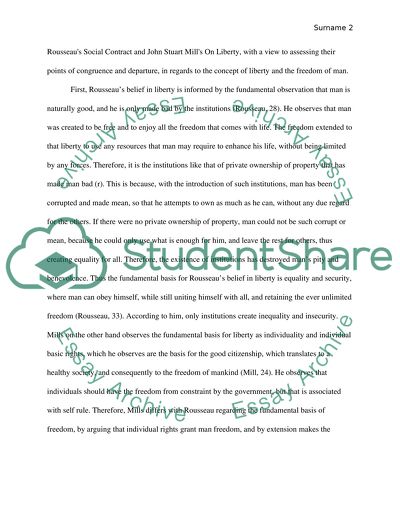Cite this document
(“Rousseau's Social Contract and John Stuart Mill's On Liberty Essay - 1”, n.d.)
Rousseau's Social Contract and John Stuart Mill's On Liberty Essay - 1. Retrieved from https://studentshare.org/philosophy/1618100-comparative-essay-on-rousseaus-social-contract-and-john-stuart-mills-on-liberty
Rousseau's Social Contract and John Stuart Mill's On Liberty Essay - 1. Retrieved from https://studentshare.org/philosophy/1618100-comparative-essay-on-rousseaus-social-contract-and-john-stuart-mills-on-liberty
(Rousseau's Social Contract and John Stuart Mill'S On Liberty Essay - 1)
Rousseau's Social Contract and John Stuart Mill'S On Liberty Essay - 1. https://studentshare.org/philosophy/1618100-comparative-essay-on-rousseaus-social-contract-and-john-stuart-mills-on-liberty.
Rousseau's Social Contract and John Stuart Mill'S On Liberty Essay - 1. https://studentshare.org/philosophy/1618100-comparative-essay-on-rousseaus-social-contract-and-john-stuart-mills-on-liberty.
“Rousseau's Social Contract and John Stuart Mill'S On Liberty Essay - 1”, n.d. https://studentshare.org/philosophy/1618100-comparative-essay-on-rousseaus-social-contract-and-john-stuart-mills-on-liberty.


